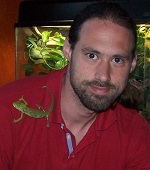Adaptive RTT – the challenge of a constant need to adapt our knowledge to the current and upcoming technological trends - PDF Version
The multidisciplinary team that works in radiotherapy, and the radiation therapists (RTTs) who are part of that team, are confronted with constant, fast technological developments. These continual changes result in the need for perpetual adaptation, not only of our daily work, professional roles and responsibilities, but also of education systems. However, those who work as radiation therapists lack a common title and, similar to the wide variation in professional titles, the basic education of RTTs shows huge diversity, from very short vocational training to several years that make up university degrees [1] and a proportion of these education systems do not cover all the necessary topics in adequate depth.
The European SocieTy for Radiotherapy and Oncology (ESTRO) together with the International Atomic Energy Agency (IAEA) aims constantly to support colleagues to push for changes in their educational systems and to make these fit for the needs of modern radiotherapy; to enable our colleagues to take full and equal parts of the multidisciplinary teams and especially to treat the patients safely and with awareness of all the errors and mistakes that can happen. ESTRO and the IAEA also tried to support this by setting a certain basic set of competences that RTTs should have at the end of their education and published a core curriculum [1] and handbook for RTT education [2] respectively. Over the last years we can now look back on a long lasting fruitful cooperation in several projects., More especially, in offering the train the trainers courses – with several reports on this project and its impact being published in a special issue of the journal Technical Innovations and Patient Support in Radiation Oncology (tipsRO) in December 2018 (link: https://www.tipsro.science/issue/S2405-6324(18)X0004-3).
But it is also part of our professional ethos that we reflect constantly on our daily work, as well as on our education to ensure that our future colleagues begin their professional lives with adequate training to take this responsibility and to treat patients safely. Our educators need our feedback and input from practice to adapt the education they offer to meet current and future needs. The longer we wait to adapt our educational systems to meet current needs, the harder it will be to introduce new colleagues to the working field and to compensate for shortcomings in their education and make them fit to work as equal team members. We should stand together as a profession across national borders – beneath the common title of RTT – to support each other in achieving this.
I offer very special thanks to the colleagues who are involved in the train-the-trainers project and to Cancer World for publishing this critical article (3). What it says might be harsh and hard to accept at some points but it is often just too easy to lean back and accept things as they are – therefore, at times it is necessary to be woken up by a critical voice.
References
1): https://www.estro.org/ESTRO/media/ESTRO/Education/Revised_core_curriculum-RadiationTherapisT26_03_12.pdf
2): https://www-pub.iaea.org/MTCD/Publications/PDF/TCS-58_web.pdf
3): https://cancerworld.net/spotlight-on/their-fingers-on-the-button-why-neglecting-radiation-therapists-is-no-longer-an-option/
4): https://www.estro.org/About/Newsroom/Newsletter/Make-it-happen/A-right-and-a-moral-obligation-Make-It-Happen-Corn

Philipp Scherer
Chair, RTT Committee, ESTRO